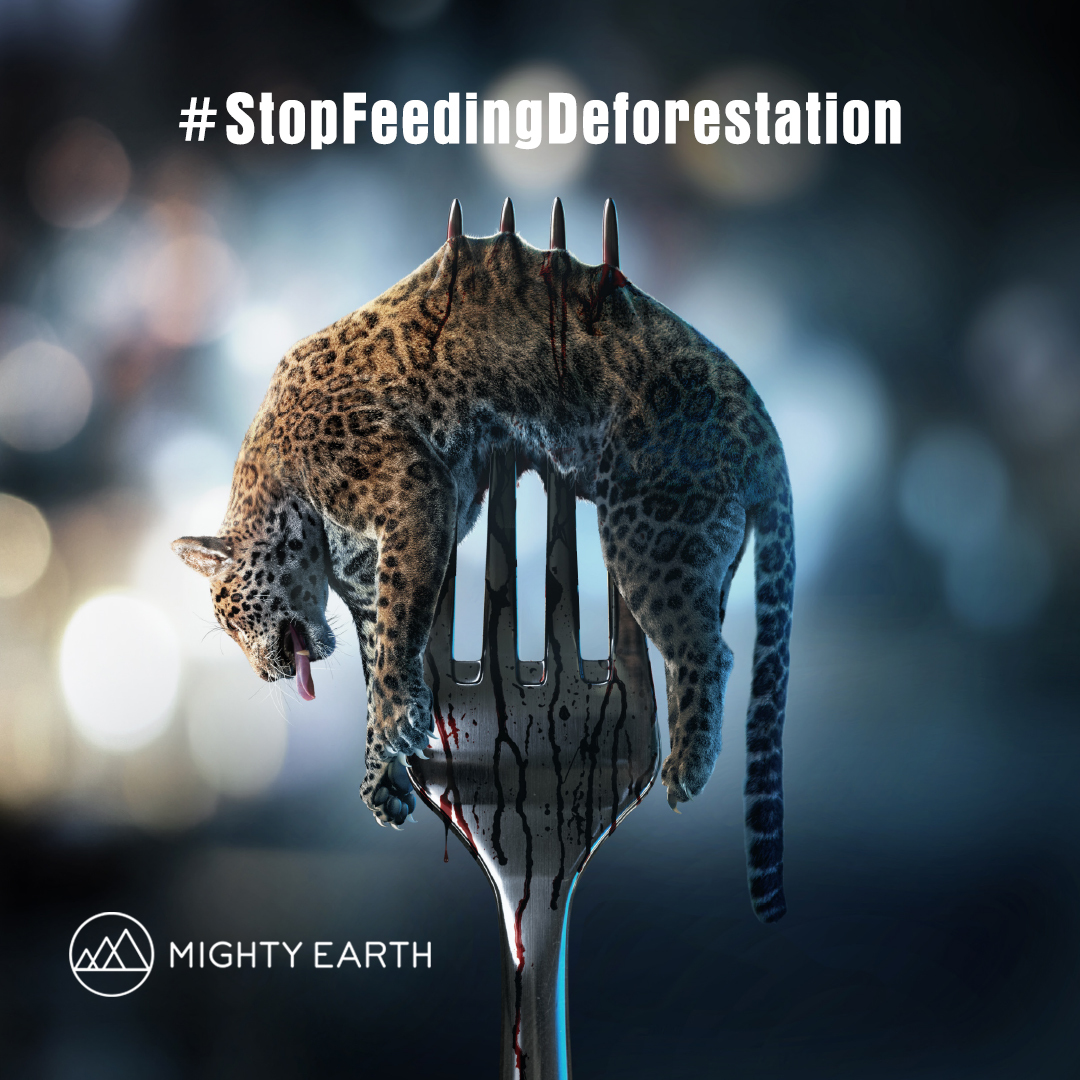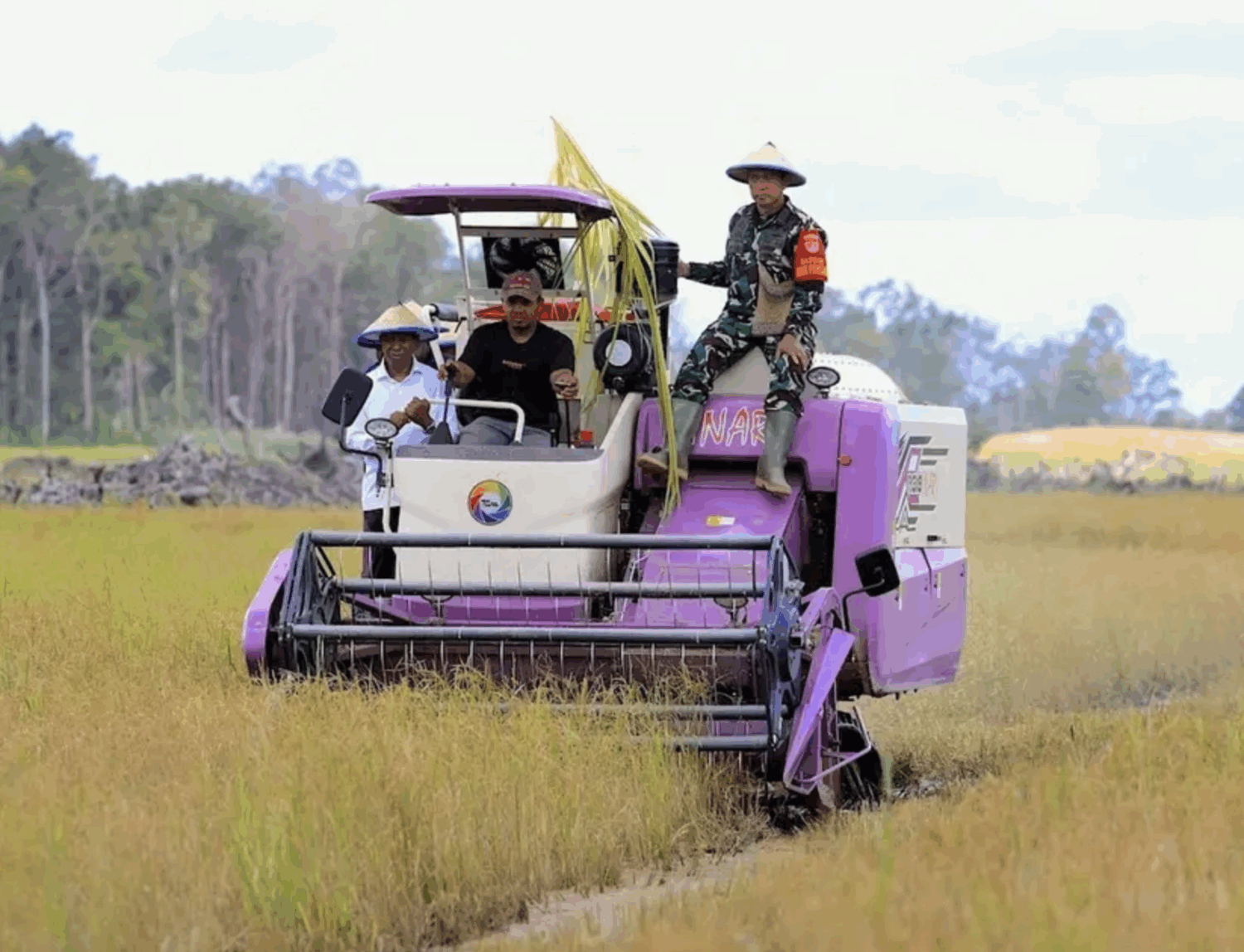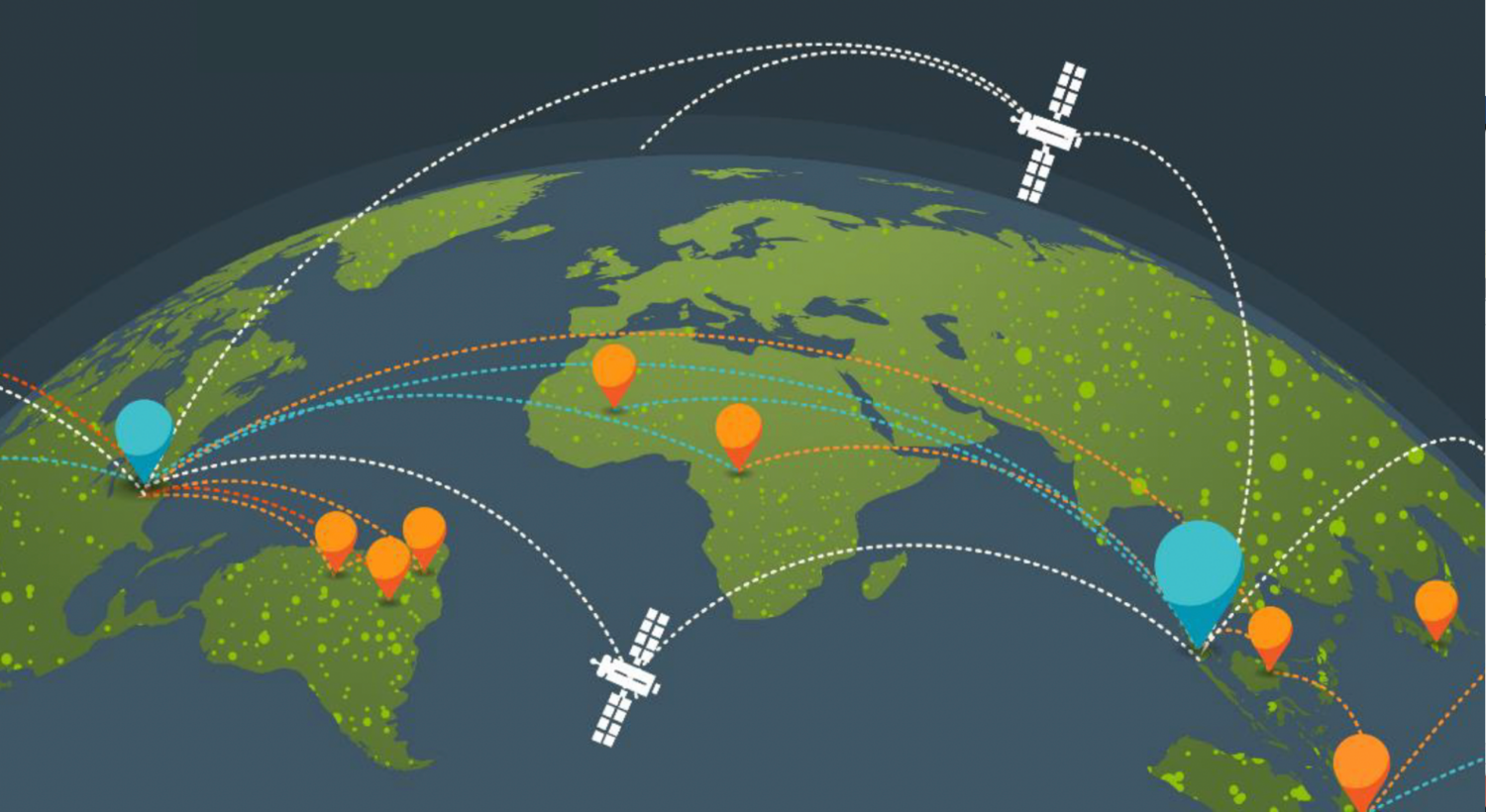
Tesco’s meat problem
Tesco’s meat problem
Britain’s largest supermarket chain, Tesco sells a lot of meat – hundreds of millions of chickens a year alone. Three weeks ago, Tesco produced a new set of requirements for its meat suppliers to try and address the massive environmental consequences of those meat sales, starting with the soy-based animal feed used to fatten chicken, pigs and cows for its own-brand meat and dairy offer.
The long overdue update has been produced following campaign efforts from Mighty Earth and Greenpeace UK – with consumers calling on the company to drop the worst forest destroyers in its supply chain.
Meat has outsized environmental consequences. Raising meat produces more climate pollution, fouls more drinking water, and requires more land for livestock and feed globally than all other food crops combined – for a fraction of the nutritional value.
But the single most acute environmental consequence is the bulldozing and burning of millions of acres of rainforest and other ecosystems to make way for industrial animal feed plantations and cattle ranches.
There has been more land in the Amazon and Cerrado Biomes of Brazil bulldozed for soy plantations than the entire land mass of Israel or Slovenia in just 11 years.
Unless companies like Tesco take strict action, it could get worse very quickly: proposed legislation in front of the Brazilian legislature, which if passed, puts at least 19.6 million hectares of public land in the Amazon at risk from large agribusiness companies trying to grab land to make more industrial feed and meat.
Within this context, the new requirements for Tesco meat suppliers sourcing from South America to have a strict no-deforestation, no-conversion and no-human rights abuse policy – based on a ‘cut-off date’, a biome-wide agreement and improved transparency in sourcing represents an improvement over the status quo.
However, unless the details are strengthened, Tesco shoppers will still be eating chicken and pork connected to the destruction of the rainforest and tropical savannah in Brazil for some time.
Supplier impunity on deforestation
Tesco’s policy, in essence, allows agribusinesses that supply animal feed to continue driving deforestation with impunity while supplying the company. In particular:
- Tesco fails to spell out how or when it will suspend meat suppliers sourcing soy animal feed from companies that drive the destruction of the Amazon and the Cerrado in Brazil, nor how they will exclude traders from their supply chain complicit in deforestation. For example, even with a recent policy commitment to zero deforestation, US agribusiness behemoth Cargill will accept or condone deforestation in its supply chain until at least 2030 – giving industrial meat interests nine years to bulldoze as much land as possible.
- The scheme allows suppliers to purchase ‘mass balance’ credits or certificates if they are unable to prove that their soy is either from deforestation-free areas or from a ‘gold standard’ certified source of supply. This discredited approach is a ‘get out of jail free’ card because it could inadvertently support deforestation by allowing Tesco suppliers like Cargill to buy soy from recently destroyed forests and savannahs, and then buy credits from land that was cleared some time ago. This type of approach has also been criticised for lacking transparency and undermining traceability.
- Finally, while the policy pays lip service to the Accountability Framework Initiative (AFI), it fails to advance the principle of ‘group level accountability’ for deforestation into practice. The AFI is currently advancing guidance that bestows responsibility on traders for land conversion that happens on any farms owned by the farmers supplying them, rather than just the farms directly in their supply chain. At present, the Tesco policy allows traders such as Cargill to sell Tesco suppliers certified no-deforestation animal feed, while continuing to buy from farmers that are razing forests in other parts of its supply chain.
A tangible way forward
We have seen whole industries change when they enforce robust policies on suppliers engaged in deforestation, pollution, or human rights abuse.
Many consumer facing companies have adopted strict policies on palm oil, for instance, that simply required suppliers not to engage in deforestation, with no excuses, no credits, and no greenwashing. Those policies were a key driver of a massive environmental success: deforestation for palm oil is down more than 90%.
Until Tesco and other companies adopt similarly strong policies and cut ties with supplier companies that are driving the destruction of Brazil’s forests – such as JBS, Cargill and Bunge, its meat is still going to be driving environmental destruction on an enormous scale.
These policies are simple, clear and affordable: to comply, all producers must do is produce meat and beef on the 1.6 billion acres of previously deforested land instead of expanding on the agricultural frontier.
That should just be the easy first step, instead of something we must fight for. But if Tesco is going to provide truly sustainable protein, it needs to go further:
- Help shift consumers to sustainable, plant-based diets. As a leading retailer in the UK, Tesco has a role to play in influencing consumer behaviour towards these diets which begin to tackle the demand-drivers of deforestation.
- Support strong forest protections in producer countries, while promoting the use of existing agricultural or degraded land for soy production. Advocacy by Tesco and other supermarkets when forest laws are under threat can help in this regard, as can cutting commercial links with suppliers that support deregulation of forest protections.
- Work with others to ensure full transparency and traceability in meat from farm to product; ensure that all soy entering the market is from ‘clean’ suppliers and move forward the principle of ‘group-level responsibility’ for deforestation – meaning that companies cannot deforest in some parts of their operation while selling ‘sustainable soy’ simultaneously to other parts of the market.
While Tesco shows positive intent through its new policy, action in these three areas would prove that the company is serious in tackling the drivers of deforestation, rather than allowing its suppliers to cut down forests on one hand, while reaping the benefits of sustainability certification and credits on the other.


